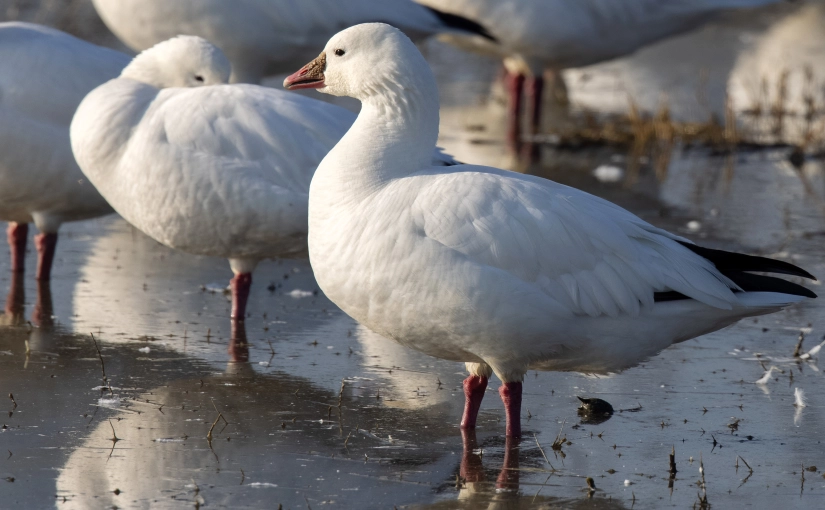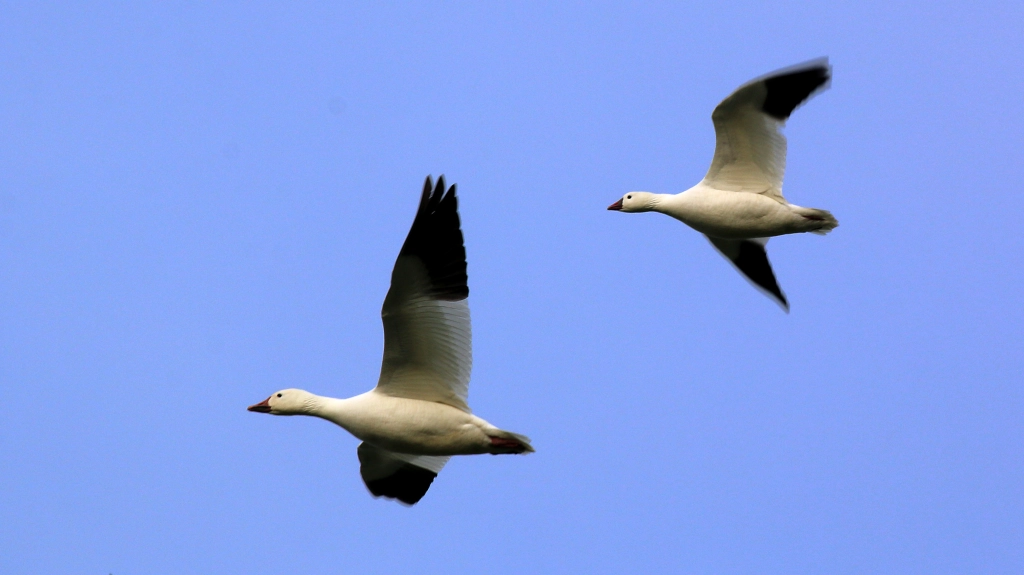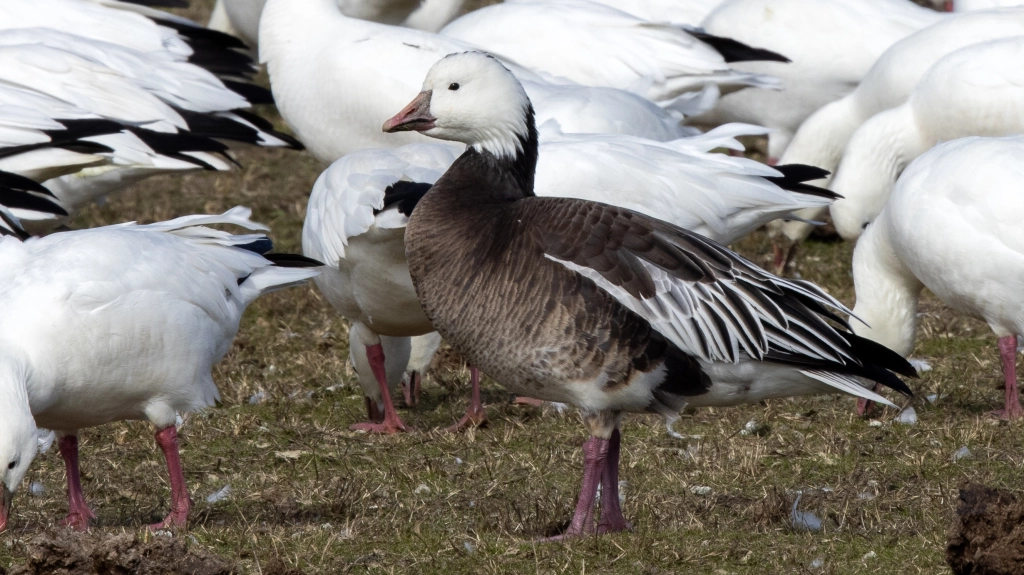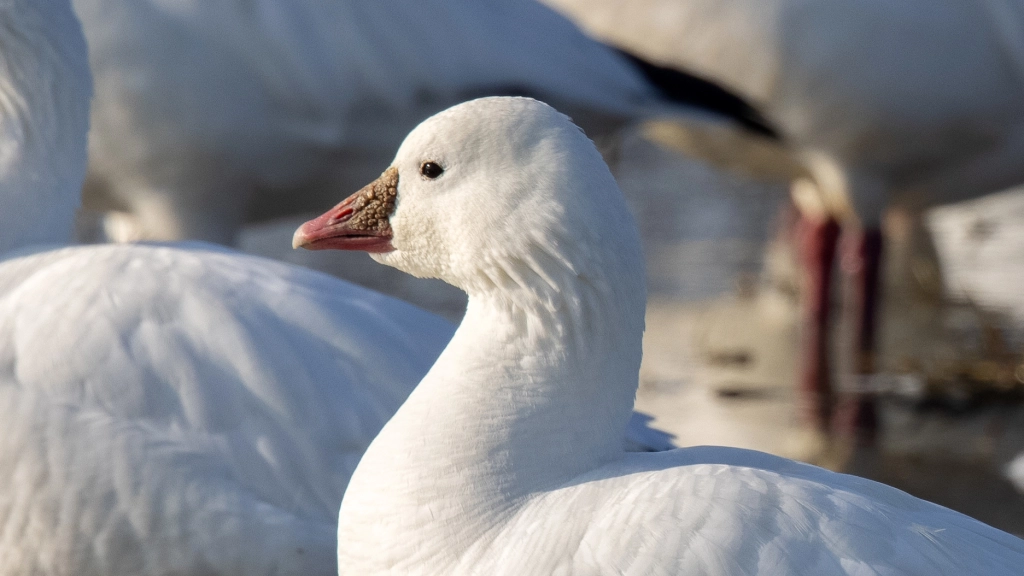In Part I of the Our Wintering “White” Geese post, we learned about the larger “white Goose with the Grinning Patch”, the Snow Goose.
In this post, the star of the show is the smaller Ross’s Goose.

Introduction
The Ross’s Goose is a Fairly Common Winter Visitor found almost exclusively in winter in the Central Valley. Similar to the Snow Goose, its preferred habitats are fresh emergent wetlands, adjacent waters in and near lakes, and nearby wet croplands, pastures, meadows, and grasslands. Fairly Common from November to early March.
Description
Plumage features of Ross’s Geese is similar to white morph of Greater and Lesser Snow geese, but average annual body mass of Ross’s Goose is 60% and 67% of these species — about a third smaller than Snow Geese. Feathers between the eyes and base of the upper bill form a straight line instead of a forward curved arc typical of Greater and Lesser Snow geese.

Along the base and sides of the bill, particularly in mature males, wartlike bumps are typical. They become more prevalent with age and may act as a badge or status symbol, serving to limit inter-species combat.
Dimorphic Forms
Similar to the “Blue morph” Snow Goose, the adult blue morph Ross’s Goose has the same dark gray-brown body but a reduced amount of white confined to just the head.
The odds of finding a dark or “Blue” morph have been calculated at about 0.008% (3 out of 38,825).

Distribution
The main wintering area for the species is presently throughout California’s Central Valley. The total number of birds has increased from a recorded low of 2,000–3,000 in the early 1950s to more than 2 million birds in 2009.
Cool Facts
The female Ross’s Goose does all of the incubation of the eggs. The male stays nearby and guards her the whole time. The female covers the eggs with down when she leaves the nest. The down keeps the eggs warm while she is away and may help hide the eggs from predators.
See more of Jim Gain’s superb images here.



Just came out of my humble living space on time to see the bellies of these beauties flying in formation over my head. What a glorious sight and sound to take in. I was honored with their presence.